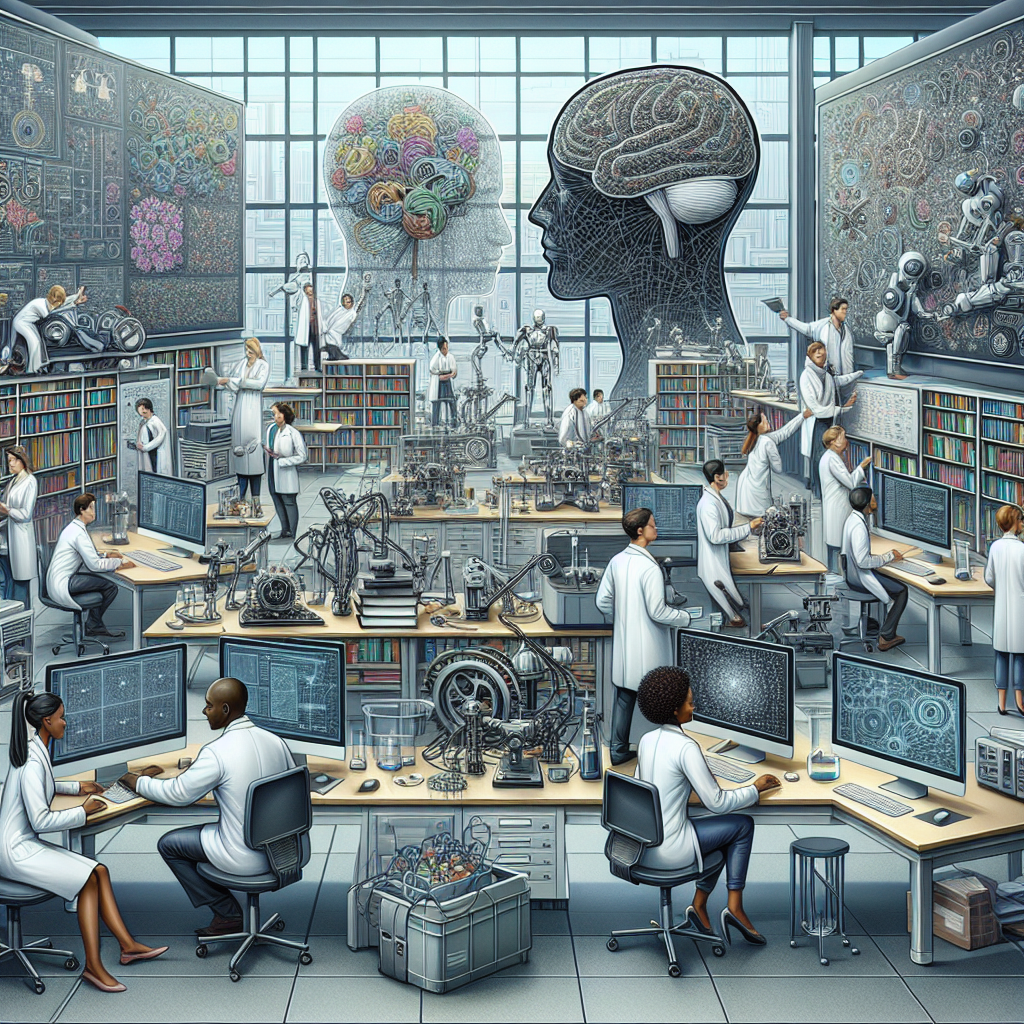The Quest for AGI: How Scientists are Working Towards Creating Truly Intelligent Machines
Artificial General Intelligence (AGI) is the holy grail of artificial intelligence research. Unlike narrow AI, which is designed to perform specific tasks, AGI refers to machines that possess human-like general intelligence and are capable of learning, reasoning, and problem-solving across a wide range of domains. The quest for AGI has been a long-standing goal in the field of AI, and scientists and researchers around the world are working tirelessly to develop machines that can truly think and reason like humans.
In this article, we will explore the current state of research in the field of AGI, the challenges that scientists are facing, and the potential implications of achieving true artificial general intelligence.
The Current State of AGI Research
While significant progress has been made in the field of artificial intelligence in recent years, the development of AGI remains a significant challenge. One of the key reasons for this is that human intelligence is a complex and multifaceted phenomenon that is not easily replicated in machines. While narrow AI systems excel at specific tasks such as image recognition or natural language processing, they lack the flexibility and adaptability of human intelligence.
Researchers are exploring a variety of approaches to developing AGI, including neural networks, symbolic reasoning, and evolutionary algorithms. Neural networks, which are inspired by the structure of the human brain, have been particularly successful in recent years, leading to breakthroughs in areas such as image and speech recognition. However, neural networks alone are not sufficient to achieve AGI, as they lack the ability to reason and generalize beyond the data they have been trained on.
Symbolic reasoning, on the other hand, involves representing knowledge and reasoning using symbolic logic, similar to the way humans think. This approach has been used in traditional AI systems such as expert systems and rule-based systems, but has limitations in terms of scalability and flexibility. Evolutionary algorithms, which are inspired by the process of natural selection, have also shown promise in developing intelligent agents that can learn and adapt to their environment.
Challenges in Achieving AGI
Despite the progress that has been made in the field of AI, there are still several key challenges that researchers must overcome in order to achieve AGI. One of the biggest challenges is developing machines that can learn and reason in a flexible and generalizable way. Current AI systems are limited by the data they have been trained on, and struggle to generalize to new situations or tasks.
Another challenge is developing machines that can understand and interpret natural language. While AI systems have made significant progress in tasks such as speech recognition and language translation, they still struggle to understand the nuances and context of human language. Achieving true natural language understanding is essential for developing machines that can communicate and interact with humans in a meaningful way.
Ethical and societal implications
The quest for AGI raises a number of ethical and societal implications that must be carefully considered. One of the biggest concerns is the potential impact of AGI on the job market. As machines become increasingly intelligent and capable, there is a risk that they could replace human workers in a wide range of industries, leading to widespread unemployment and economic disruption.
Another concern is the potential for AGI to be used in military applications, such as autonomous weapons systems. The development of intelligent machines that can make decisions independently raises questions about accountability and control, and the potential for unintended consequences.
On a more positive note, AGI has the potential to revolutionize a wide range of industries, from healthcare to transportation to finance. Intelligent machines could help us solve some of the biggest challenges facing humanity, such as climate change, poverty, and disease. By harnessing the power of AGI, we could unlock new possibilities for improving the quality of life for people around the world.
Frequently Asked Questions
Q: How close are we to achieving AGI?
A: While significant progress has been made in the field of AI, true AGI remains a distant goal. Researchers are making steady progress in developing intelligent machines that can learn and reason in a generalizable way, but there are still many challenges that must be overcome before we can achieve AGI.
Q: What are the key challenges in developing AGI?
A: Some of the key challenges in developing AGI include developing machines that can learn and reason in a flexible and generalizable way, understanding and interpreting natural language, and addressing ethical and societal implications.
Q: What are the potential implications of achieving AGI?
A: Achieving AGI has the potential to revolutionize a wide range of industries and improve the quality of life for people around the world. However, there are also concerns about the impact of AGI on the job market, as well as ethical and societal implications related to accountability and control.
In conclusion, the quest for AGI is a complex and challenging endeavor that has the potential to transform the way we live and work. While significant progress has been made in the field of AI, there are still many challenges that must be overcome before we can achieve true artificial general intelligence. By continuing to push the boundaries of AI research and exploring new approaches to developing intelligent machines, we can move closer to realizing the dream of AGI and unlocking its full potential for the benefit of humanity.

